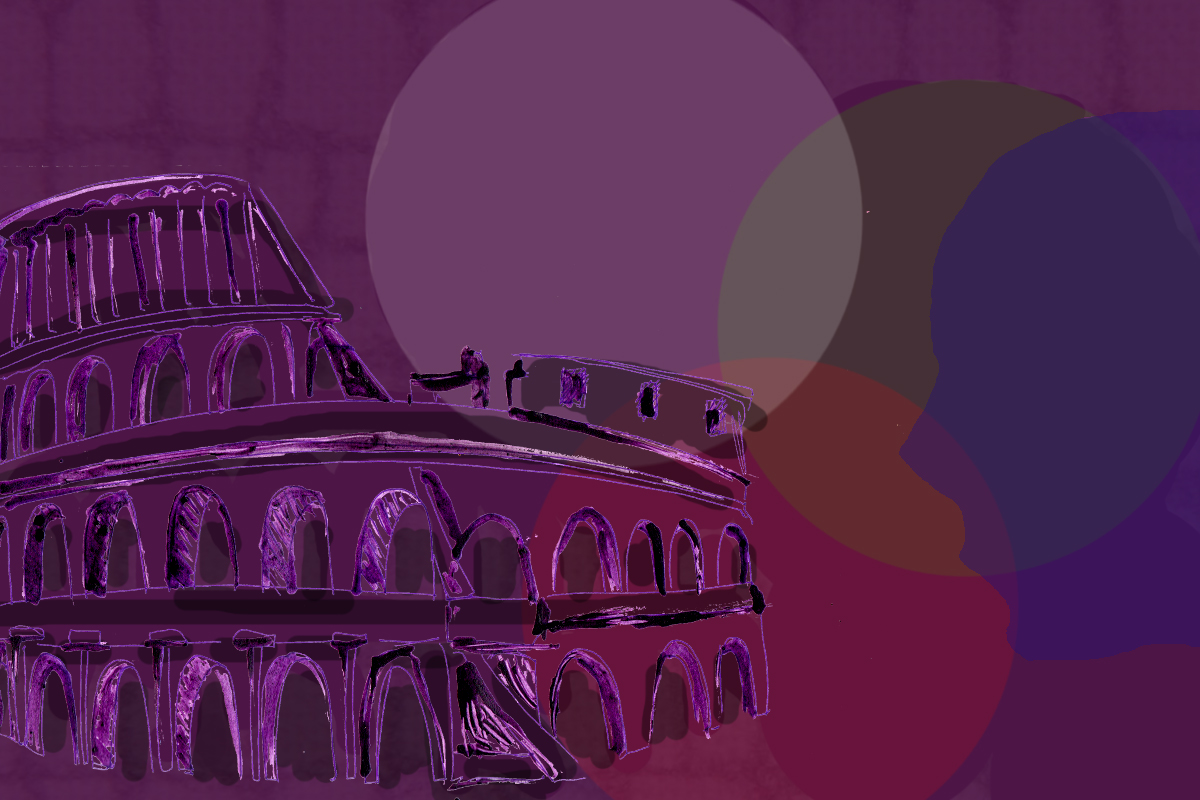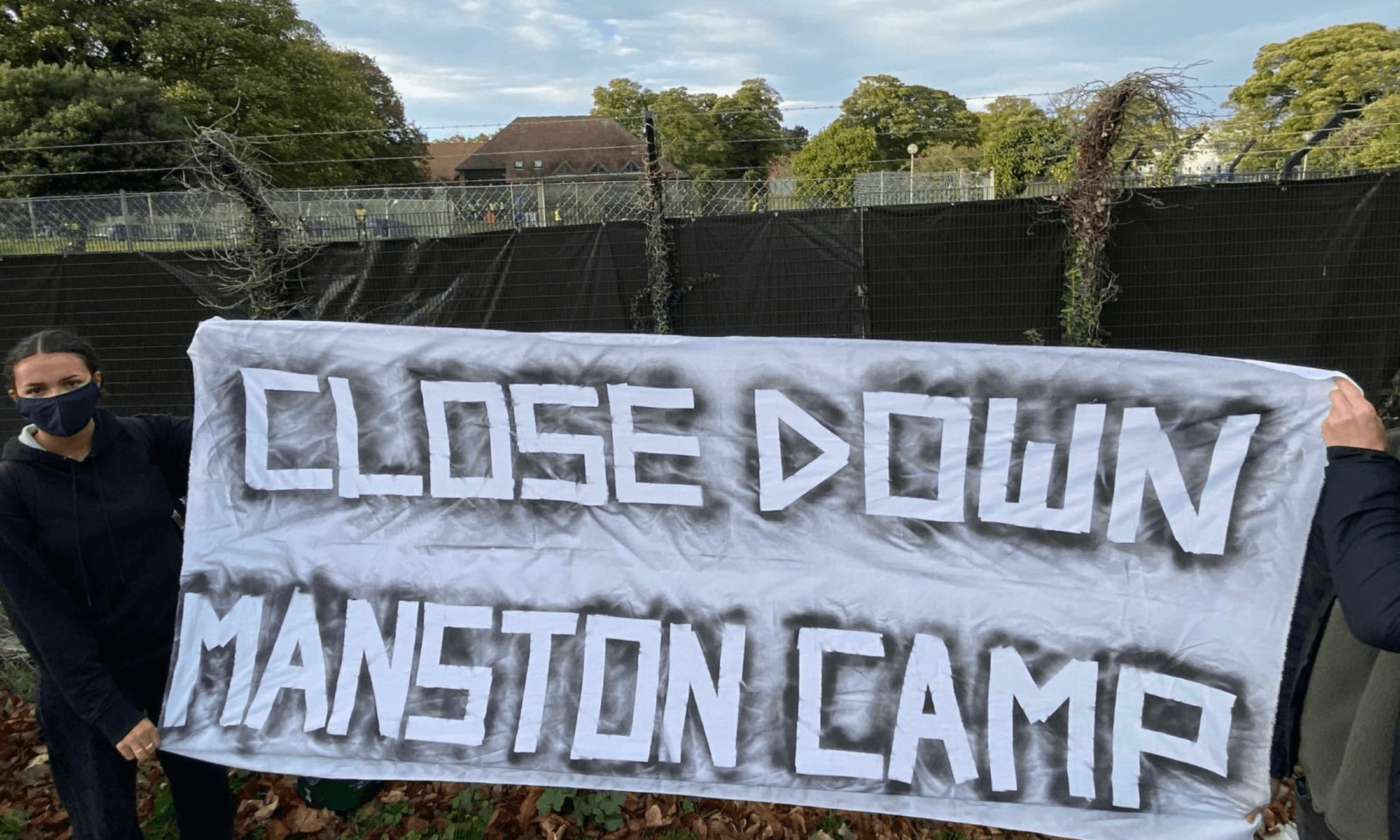
This is why I refuse to turn a blind eye to black and Bangladeshi migrant workers in Rome
Sahar Shah
12 Jun 2019
Illustration by Farnaz Zare
Holidays are often full of moments that don’t quite make it to our Instagram stories: boring walks, mediocre meals, underwhelming tourist sites. Holiday pictures gloss over the complexity of reality; they don’t foreground socio-economic inequality and the exploitative labour that underwrites the tourism industries of so many popular travel destinations. None of the photos I posted on Instagram after a recent trip to Rome captured something starkly apparent to my sister and me: almost every casual tourist vendor is South Asian or West African, in contrast to the hoards of white people milling around Rome’s famous attractions.
I found out later that Nigerian and Bangladeshi nationals make up the two largest groups of people migrating to Italy.There are two main groups of Bangladeshi migrants living in Italy today – those that migrated directly from Bangladesh, and those that fled Libya due to grave human rights abuses. Traffickers facilitate the dangerous journey from Bangladesh to Libya. As of 2017, around 29.8% of young people in Bangladesh were not in employment, education, or training and thanks to global industries like fast fashion, most available work is low paid and precarious, meaning people are willing to take enormous risks in order to find employment.
“Almost every casual tourist vendor is South Asian or West African, in contrast to the hoards of white people milling around Rome’s famous attractions”
In 2017, it was reported that around 20,000 Bangladeshis were trapped in Libya, where refugees are “tortured daily, atrociously, for years on end”, according to Lampedusa-based doctor and refugee rights campaigner, Pietro Bartolo. The NGO Human Rights Watch has reported that the EU is providing support to the Libyan Coast Guard, enabling it to intercept migrants at sea, and to then detain them and subject them to degrading conditions and in some cases torture, sexual violence, extortion and forced labour. Amnesty International and UN human rights chief Zeid Ra’ad al-Hussein have confirmed this assessment, calling the EU’s partnership with Libya “inhuman”.
In response to human rights concerns, the EU has established initiatives such as Operation Sophia which claims to “neutralise” refugee smuggling routes in the Mediterranean. However, this operation doesn’t address any of the root causes of mass migration from the Global South to the Global North, such as extreme global economic inequality, which exists as the legacy of historical and ongoing processes of colonial and capitalist extraction of land and labour. The blame for trafficking and violence, in this case, does not always begin or end with “lone wolf” cruel and opportunist traffickers or villainous border guards in Libya. In this case, it ends (and perhaps begins) with Europe.
***
Bangladeshi migrants in Rome have carved out a significant niche in the local economy; for example, on my trip I spoke to a few grocery store owners, shop owners, and shop workers who feel comfortably settled. However, according to the Italian government, the country has also been inundated with applications for asylum and many arrive in Italy with false documents. They integrate themselves into the informal economy in order to survive. One man I met selling wooden letters and selfie sticks near the picturesque Villa Borghese told me, “This is an illegal business.” He explained that police officers fine sellers whenever they are “caught”. When I asked people why they moved to Bangladesh, they told me, “Broken promises”.
Many of the men in informal work in Rome were told at some point in their journey to Italy that there would be many high-paying jobs available, only to find out upon arrival that this was not true. “There’s a work crisis in Italy right now,” one man explains. “When I came, many years ago, I thought it would be a different situation and there’d be more jobs. What they said wasn’t true. I didn’t find out until I came here.”
“Everyone I spoke to reported being treated well by local Italians and tourists, though stories of migrants being abused have been reported”
The dangers of being caught selling tourist merchandise without a license extend beyond fines: anybody that happens to have a visa can have their documents confiscated and revoked if engaged in unlicensed selling (i.e. “street hawking”). “I used to work illegally like that,” a man working in a leather shop told me. “But it’s dangerous. If the police fine you, you lose your residency rights.”
He hinted that it was likely that some officials were aware of these networks. Despite the existence of TripAdvisor threads with titles such as “Street Sellers: Pests that Need Control?”, everyone I spoke to reported being treated well by local Italians and tourists, though stories of migrants being abused have been reported. “The people are okay. The police are not,” he told me. The New Humanitarian reports a number of Bangladeshi street hawkers being questioned on the streets by police officers and chased away by officers on motorcycles.
***
As I write this article, an anti-migrant right-wing politician in Sicily has just won a seat in the European Parliament elections. It’s part of a wider political nudge towards the far-right. He said: “Instead of the wall that Italy did not build on its own territory, we’ve erected two walls elsewhere. The one in Libya has allowed us to cut the number of arrivals on our shores by 70%; the other, within ourselves, allows us to pretend we don’t see what is being done to the 70%.”
Who and what, exactly, do walls and borders protect? It isn’t just the “people within” as Trump argued in his Oval Office address, defending the border US-Mexico border wall. Consider the now infamous French case in which refugee rights activists rallying against vigilante policing of the French border by far-right group Génération Identitaire were prosecuted under a 1938 law that enables the prosecution of anybody that helps a “foreigner” enter the country illegally. These activists (dubbed the Briançon 7) are ostensibly within the group of citizens that European borders are supposed to be protecting – until they took a stand against the systems that the borders are actually protecting.
The problem is not that borders are totally strict or closed either – in fact, the relative opening of borders for many countries has gone hand in hand with the rise of globalisation. Crucially, borders are strict and closed to certain people. The logic of borders today is therefore pretty simple: borders are friendly to those that can enhance economic advantage (to varying degrees – this “friendliness” intersects with other forms of power and privilege, such as race). Today, with the advent of outsourcing and long, opaque supply chains, countries can leverage the fruits of low-wage labour without ever having to deal with the people attached to that labour.
“People outside Europe are often the people that suffer the most from the legacies of European colonisation and the contemporary predations of capitalism”
Within the calculus of border logic, there is no real conception of human life as inherently valuable and worthy of protection. Even Europe’s “free movement of people” exists within a wider global market in which Europe competes economically. People outside Europe, like those in Bangladesh, are often the people that suffer the most from the legacies of European colonisation and the contemporary predations of capitalism. They are surplus to requirements and thus excluded from this spirit of unity. Writer and lecturer Kenan Malik remarked that “the irony of European countries demanding the right to maintain sovereignty over their borders… seems to have passed everyone by.”
After speaking to the people I interviewed for this article, I visited the Colosseum, which I later found out was built by 60,000 slaves. I feel overwhelmed sometimes by the fact that everything these days seems morally tainted: clothes, food, travelling (a phenomenon brilliantly conveyed in season three of The Good Place). It’s hard to know what we can do as individuals when we’re faced with enormous, complex problems and then shown the ways in which we are complicit. Perhaps the answer, for now, is to refuse to turn a blind eye.
As the number of people severely disadvantaged by borders increases, perhaps we can be optimistic that the EU-Libya collaboration might find its “out of sight, out of mind” approach to border policing becomes financially unsustainable. However, as well as truly enabling freedom of movement, perhaps we need a radical re-working of the very concept of migration. Alongside the task of eliminating the walls that delineate nations, maybe the first thing we need to focus on is, as Pietro Bartollo said, the walls we have erected inside ourselves that tell us that we are inherently separate from others.









